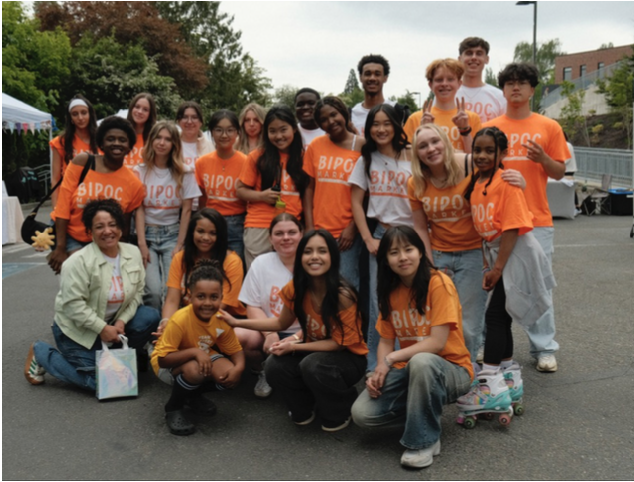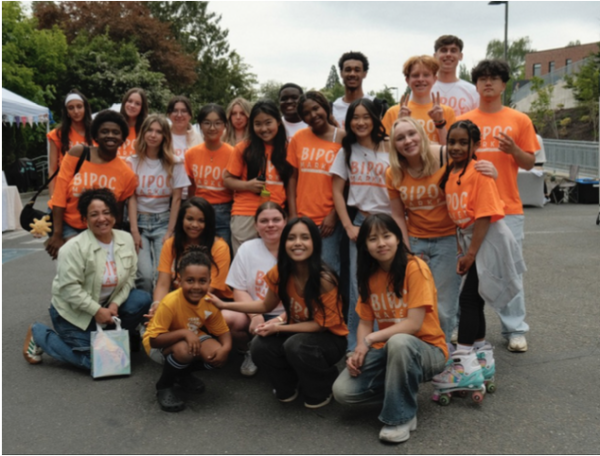Student Life & Governance releases 1st constitution
May 8, 2019
This week Annie Wright Upper School for Girls’ Student Life & Governance body released a constitution. The document, below, covers duties and structure of the body, election protocols and officer responsibilities.
Annie Wright Student Life and Governance Constitution
Preamble
We, the students of Annie Wright Upper School for Girls, lay special attention on social experiences, communication, and integrity. In which, we devote our time to focusing on the elimination of the day and dorm divide, the transparency between the student body and faculties, the organization of events, and the supervision of by-laws. This way, we may be able to centralize the extra-curricular activities of this school and to establish a more unified student body. These goals of the 2018-2019 school year will be revisited each year in order to better embody the needs of the school at that time.
Article I
Student Life and Governance
Student Life and Governance is a council comprised of two separate boards: the Mission Board and the Community Board. Each board has a separate set of responsibilities, addressing various facets of the school. The Mission Board is held accountable for upholding school values, organizing school policies, and enacting new regulations along with planning traditional events. The Community Board, on the other hand, focuses on forming harmony between students, and organizing and planning school events. These two boards work in cooperation in order to buttress school traditions and to generate a better atmosphere for our peers.
Article II
Duties of Student Life and Governance Officers
The House Speaker communicates with the student body to relay accurate information. They will look over all Student Life and Governance functions in both boards. They will also lead both Class Meetings and Morning Meetings. The House Speaker will decide on what council matters the full council will vote on.
The Community Board Head communicates with the student body to relay accurate information. They will preside over all functions in Community Board. They will also lead both Class Meetings and Morning Meetings. The Community Board Head will decide on what Community Board matters the full council will vote on.
The Mission Board Head communicates with the student body to relay accurate information. They will preside over all functions in Mission Board. They will also lead both Class Meetings and Morning Meetings. The Mission Board Head will decide on what Mission Board matters the full council will vote on.
All elected members of Student Life and Governance hold a vote to full council matters.
Students who choose to participate in Student Life and Governance as a (s)Elective will either become a part of the Community Board or the Mission Board. In this board, they will have the opportunity to participate in all planning, activities, and offer opinions on all voting matters but they will not have a vote.
The advisor for Student Life and Governance will help students in planning events. However, most of the ideas will come from the students themselves. The advisor will not partake in voting.
Article III
Voting Processes
Affirmative votes will be passed by a ⅔ majority rule or else votes go back for discussion.
Multiple choice votes are settled by a majority rule. Voting is also prohibited outside of meeting time in order to avoid stalling of any discussed topic. If one is voting from outside of the Student Life and Governance council meeting time, they must send votes through email or text to the advisor.
Article IV
Election Process
The House Speaker and Head of Board candidates will nominate themselves and run for their selected position. They will then write a statement that will be published on Inkwell and printed for student reference. There will then be a question forum and voting through an instant runoff method.
Class Officers will be nominated by classes through surveys attaching links to class rosters for reference. Once nominated, they will present a speech during Class Meetings, and their classmates will vote through online surveys.
Article V
Officer Consequences
- Any elected member who is in violation of the Honor Code and sent to Honor Council will be closely watched for further disciplinary infractions by the advisor of Student Life and Governance through the duration of their elected term. Essentially, this serves as a probationary period. The other council members will not be notified of the probation. The consequences and probation given to a student will depend on the severity of infractions, but Honor Council along with the Upper School for Girls Dean will make those decisions. If there are no further violations within the probationary period, the officer will incur no further consequences.
- If an elected member repeats the same infraction during any of their serving terms, they will receive an automatic suspension from the council.
- If an elected member is suspended from school, they will be removed from Student Life and Governance and lose their representative position. However, the student may be eligible to hold the right to run for office in future elections.
Replacement Policy
- If an elected officer leaves their position, the candidate with the second highest votes will be automatically eligible for that position. Another election process will be held within 2 weeks if the previous runner refuses the position.
- Under the condition that the head of a board leaves, all junior and senior members in the Student Life & Governance council are eligible to be considered for the open position.
Voting process will be conducted within the Student Life & Governance council. Candidates can either self-nominate or be nominated. Nominees will each provide a 90 second statement of intent during the election.
The equation will be applied to calculate the minimum number of votes needed for the candidate to be elected; m represents the number of total voting members and c is the number of candidates running. This style of voting works as a normal vote in which voting members place one vote for the person they want to be elected. This formula simply provides the number of minimum votes needed. Instant runoff method will be automatically employed in case of a tie.
Article VI
Campaign Restriction
Candidates running for office may not spend more than $15 of their own money on advertising, such as making posters. The candidate may also not distribute goods (candy, buttons, etc.) as a form of persuasion. Candidates cannot be sponsored.
Honor Code
Live Honorably
Act Responsibly
Accept and Learn From My Mistakes
And Help My Friends Should They Do Otherwise










